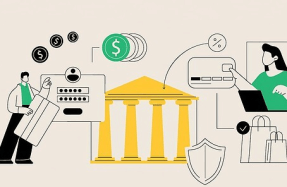Second-hand Luxury: Should Personal Luxury Brands Sell Pre-owned Products?

As luxury brands seek to protect their symbolic capital and prestige, entering resale markets is a strategy to be carefully considered before diving into, JN Kapferer examines the challenges and opportunities for luxury brands to enter the Second-hand market, and offers operational suggestions for brands that decide to do so.
Buying second-hand luxury products is not a new idea. In jewelry markets for example, historical figures often sold family jewels or precious gems if the family fortunes ran low. In the watch sector, specific stores and websites focus on vintage models and appeal to collectors of reputed Patek items or Rolex Daytona, who seek the previously owned versions and also demand confirmations of their authenticity. Selling pre-owned luxury cars is a prominent element of the revenue model of luxury automobile dealers. The first clients registered on waiting lists for the newest Ferrari model often already own one and expect to sell it back to their local dealer. This option to buy back used cars and sell new ones has various benefits for the dealers, in that it establishes a seamless, continuous client relationship; helps control sales regionally; and makes the brand available to new clients who might not have the budget to afford the latest model or who do not want to suffer the typical 20 percent drop in value in their first year of ownership. To attract such buyers, luxury car dealers refurbish the pre-owned cars carefully, then sell them with a guarantee and certification, offering the same service excellence they provide to buyers of new cars.

By definition, luxury brands offer superlative after-sales service and repair any products sold, regardless of its age.
Yet these exceptions prove the rule: The personal luxury goods sector largely ignores what happens to its new products after they get sold to clients, other than ensuring their quality. By definition, luxury brands offer superlative after-sales service and repair any products sold, regardless of its age. Hermes markets its heritage by promising to be able to trace all saddles sold since the creation of the company in 1854, so that any required repair can be informed by the details specific to the manufacture of that unique product. Yet few brands attend to or participate in the resale of their products by the original buyers, especially asRewind Vintage, Decades in Los Angeles, and Didier Ludot. The RealReal reached $400 million in sales in 2017; Vestiaire Collective has a presence in 50 countries. Although the platforms perform similar functions, their business models vary. For example, eBay and Alibaba provide peer-to-peer marketplaces, with no guarantees about the source of the products their vendors sell. As a result, these platforms feature a seemingly uncontrolled rash of fake and counterfeit products, representing the lower end of the pre-owned luxury market.
You’re reading a preview, subscribe to read more.
Start your free 30 days





